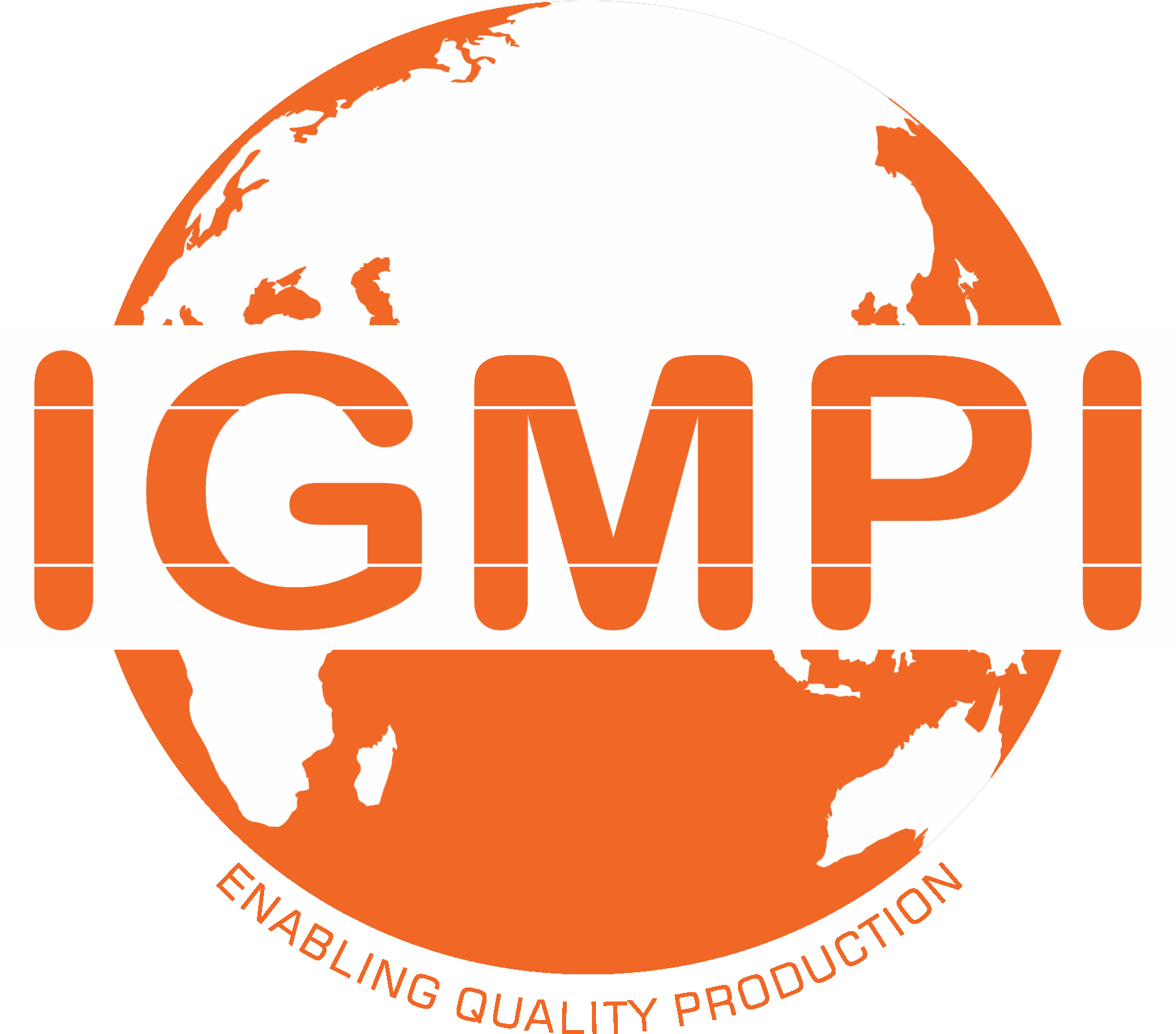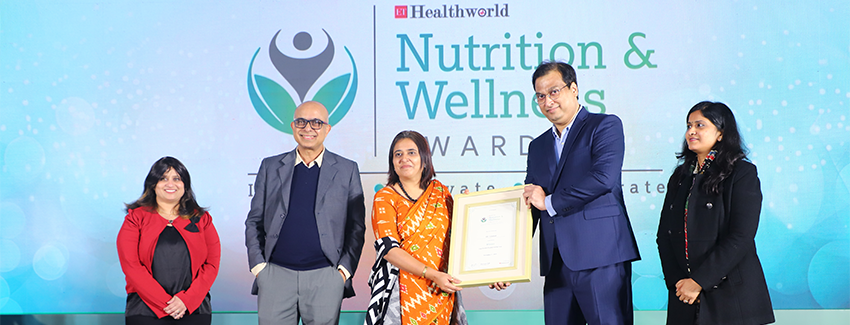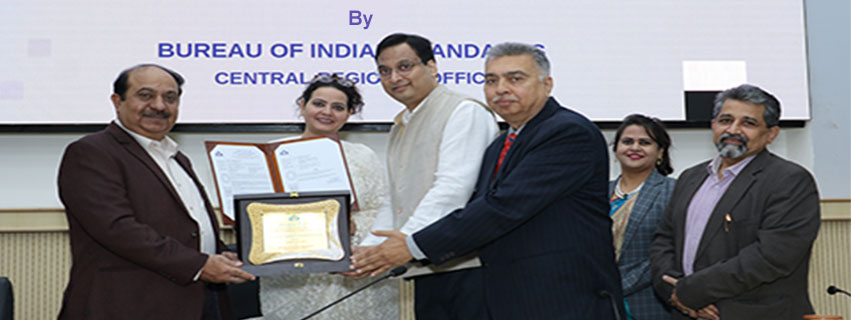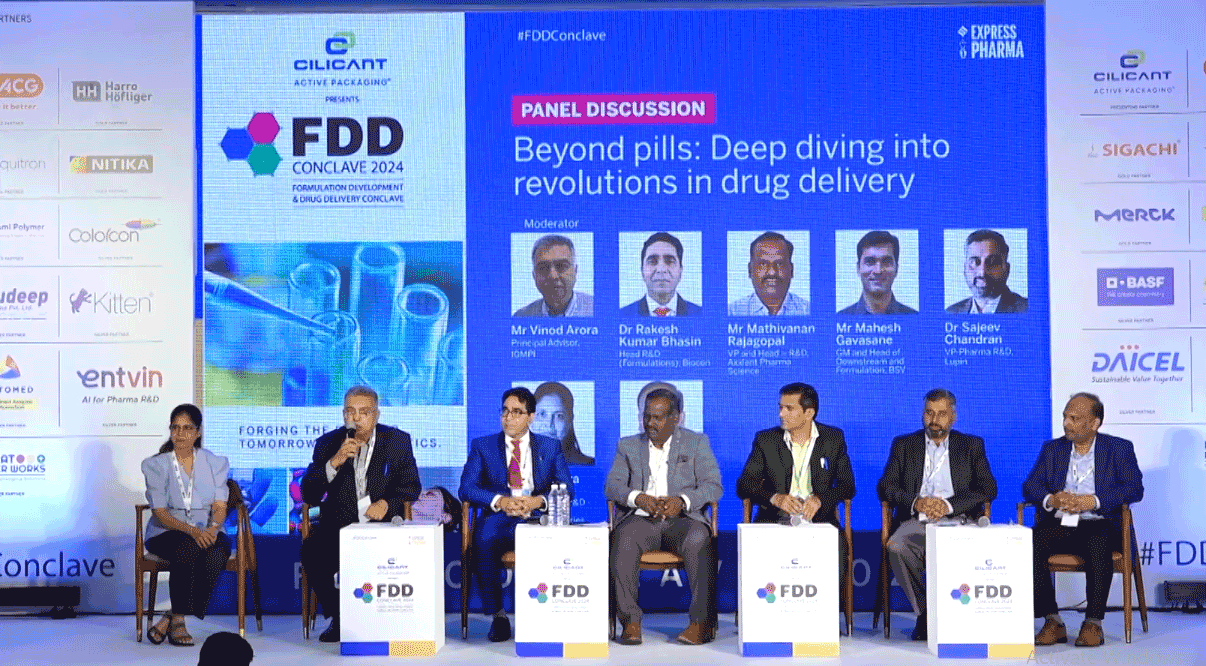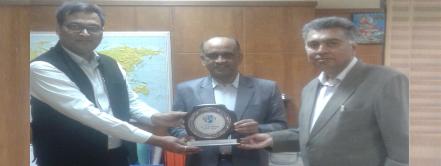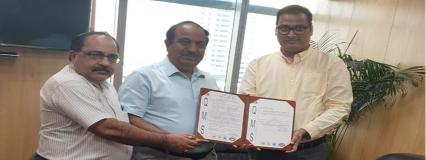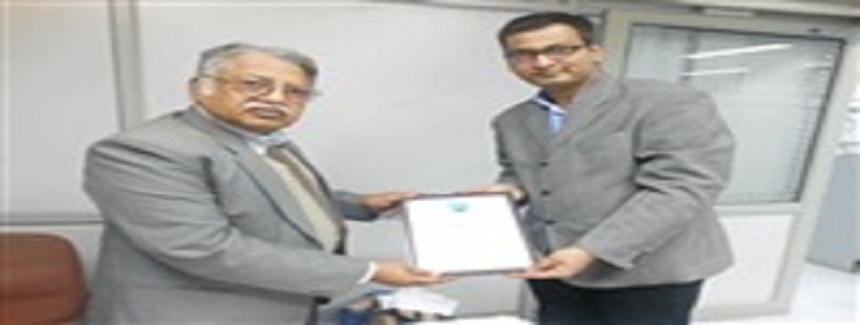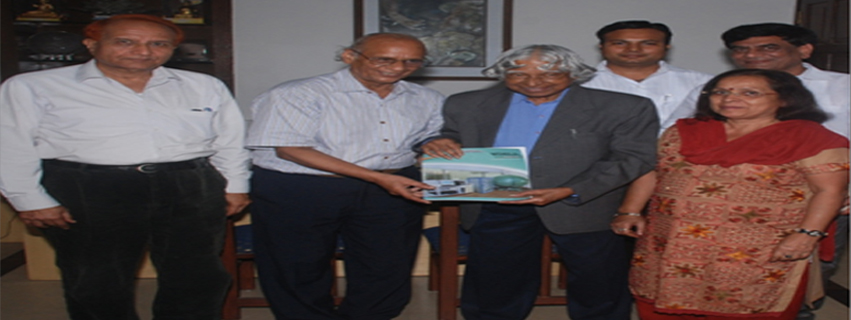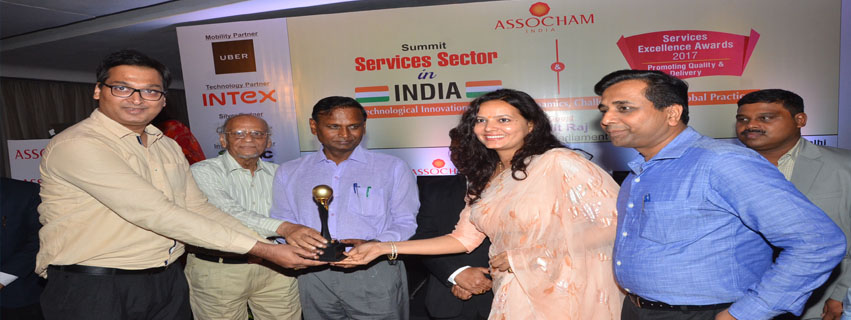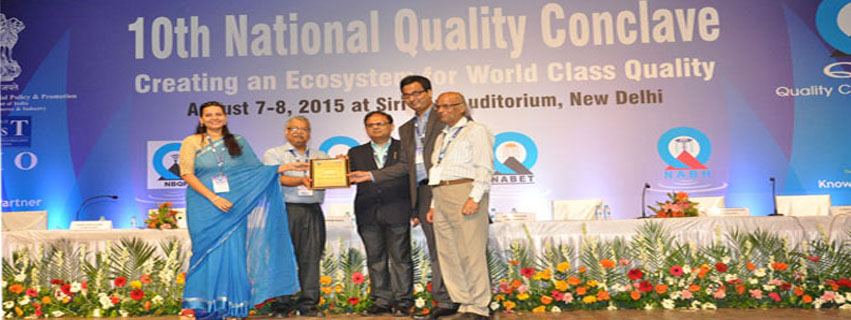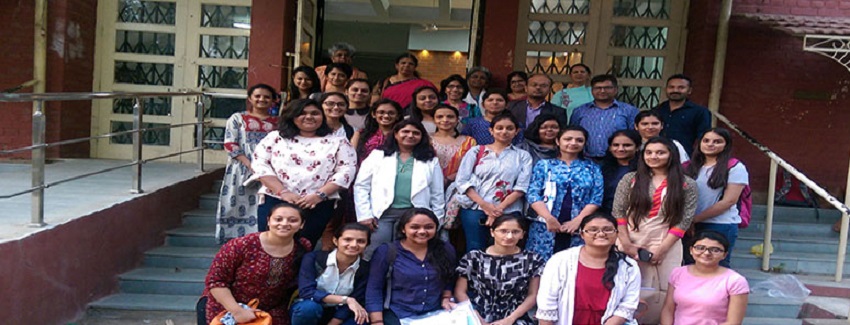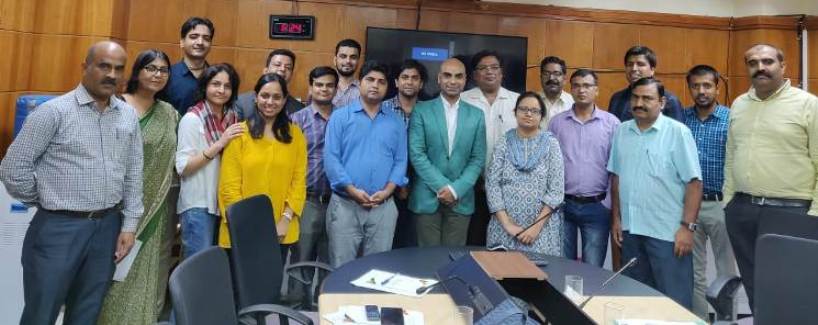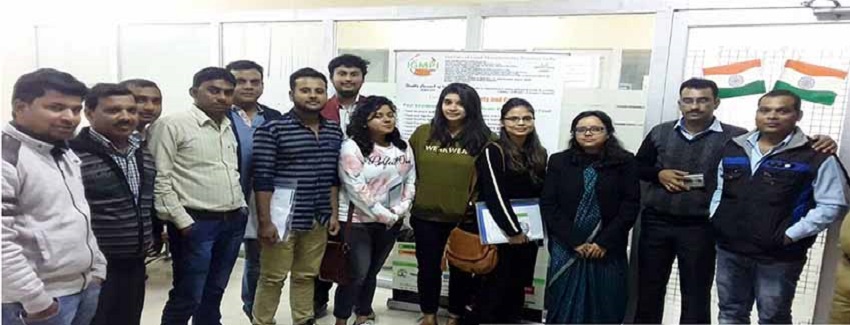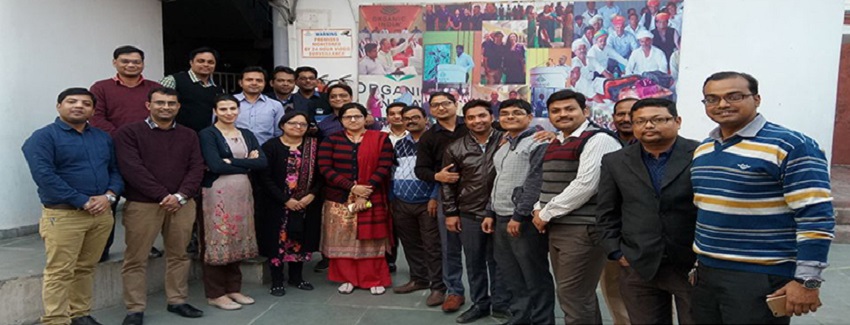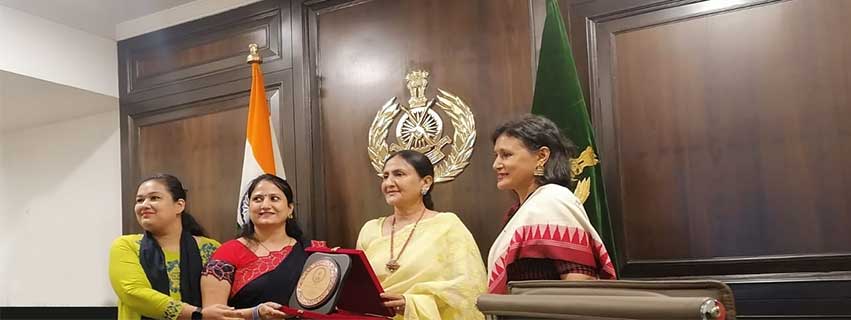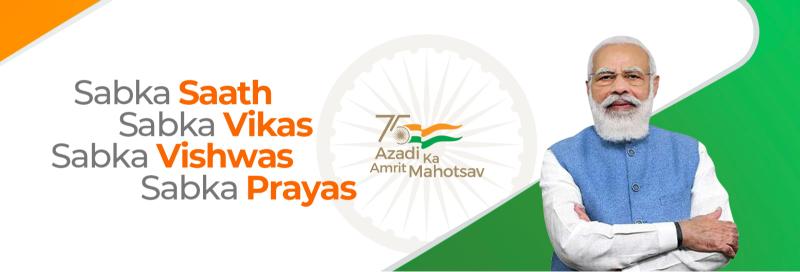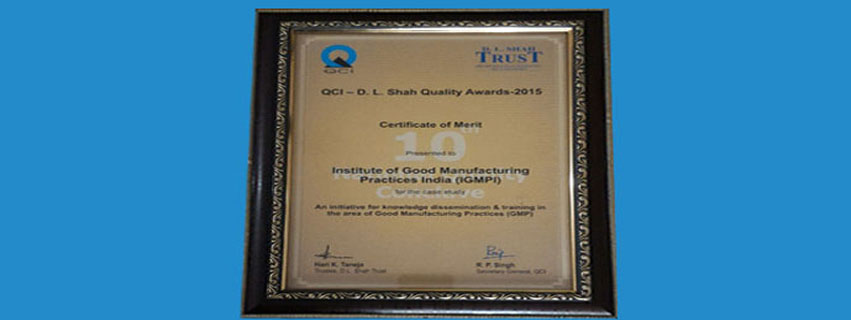(An Autonomous Body Recognized by Ministry of Commerce & Industry, Government of India)
Competency based placement focussed Education | Training | Research | Consultancy
Post Graduate Diploma/Executive Diploma in Psycho-oncology (PGDPO/EDPO)
The PG Diploma/Executive Diploma in Psycho-oncology is a specialized, comprehensive program designed to equip professionals and graduates with an in-depth understanding of the psychological aspects of cancer care and effective therapeutic interventions. This course provides a blend of robust theoretical foundations, contemporary counselling methods, and practical techniques to prepare students for work in oncology counselling, psycho-oncology, and supportive care for patients, families, and caregivers.
Program Overview:
This program offers a thorough exploration of core psycho-oncology principles, from foundational theories to the latest research on the psychological aspects of cancer care. Participants will engage in a study of the emotional, cognitive, and social experiences of patients and their families across the cancer journey, examining how illness, treatment, and individual factors influence mental well-being.The course integrates advanced counselling theories with practical approaches to psycho-oncology, enabling participants to develop the skills and knowledge needed to understand and support individuals facing cancer-related psychological challenges. “Students will learn to identify and address a wide range of psychological issues, such as anxiety, depression, adjustment disorders, and fear of recurrence, as well as coping with pain and end-of-life concerns. Emphasis will also be placed on understanding the impact of family dynamics, socio-economic factors, and healthcare environments on patients' mental health including coping with pain, fear of recurrence, and end-of-life issues. . The curriculum further explores ethical dilemmas, cultural considerations, and the integration of technology in oncology psychological care, preparing graduates to adapt to evolving therapeutic landscapes.
Programme Structure
International Affiliation with
Programme Structure
International Affiliation with
Module 1: Introduction to Psycho-Oncology
- Definition and scope of Psycho-Oncology
- Cancer and mental health: psychological implications
- Psychological response to the diagnosis of cancer
- Stress and its link with cancer progression and outcomes
Module 2: Distress in Cancer
- Understanding distress in oncology settings
- Causes and contributors of distress
- Patients at increased risk of high distress
- Prevalence of distress in cancer patients (global and Indian context)
- Strategies for assessment and management of distress
Module 3: Adjustment Disorders in Cancer
- Coping with cancer-related stress
- Prevalence and diagnostic criteria
- Subtypes and risk factors for adjustment disorders
- Management strategies and prognosis
Module 4: Depression and Depressive Disorders in Cancer
- Epidemiology and prevalence (with an Indian perspective)
- Diagnostic challenges and risk factor assessment
- Under-recognition and stigma of depression in oncology settings
- Depression in terminally ill patients and paediatric oncology cases
- Psychological and pharmacological treatment approaches
Module 5: Psychiatric Morbidity and Palliative Care
- Common psychiatric morbidities in cancer patients
- Principles of palliative and end-of-life care
- Role of psychotherapy in palliative care
- Multidisciplinary team approach
Module 6: Communication Skills in Oncology
- Barriers to effective communication with patients and families
- Guidelines and strategies for breaking bad news
- Understanding collusion in oncology care
- Situations requiring advanced communication skills
Module 7: Caregiver Stress and Burden
- Concept, meaning, and scope of caregiver stress
- Impact of caregiving on physical and mental health
- Pain relief and symptom control in caregiving context
- Home-based care versus hospice-based care
- Role of family in caregiving and support
Module 8: Ethical and Legal Aspects
- Ethical principles in oncology and palliative care
- Role of ethics committees in palliative care settings
- Ethical dilemmas in end-of-life decisions
- Ethics of palliative care training and trainers
- Integration of spiritual care within ethical frameworks
Module 9: Grief in Oncology
- Stages and processes of grief in cancer care
- Impact of grief on patients, caregivers, and professionals
- Risk factors for severe or complicated grief reactions
- Types of grief (anticipatory, disenfranchised, prolonged, etc.)
- Assessment tools and management strategies for grief
Module 10: Spirituality in Cancer Care
- Understanding spirituality at the end of life
- Concepts of spiritual distress and coping mechanisms
- Experience of spiritual pain among cancer patients
- Approaches to spiritual care and counselling
- Methods of assessing spirituality in clinical settings
Module 11: Nutrition, Dietary, and Lifestyle Risk in Cancer Prevention
- Understanding how dietary patterns influence cancer risk
- Importance of lifestyle modifications in reducing cancer incidence
- Nutrition and Cancer Relationship
- Dietary Risk Factors
Module 12: Case Study
Module 13: Capstone Project
Eligibility
Graduates in any discipline are eligible for our Post Graduate Diploma, Executive Diploma and Professional Certification Programmes.
Programme Duration
The minimum duration to complete the PG diploma programme is 12 months and maximum is 24 months. The minimum duration to complete the executive diploma programme is 6 months and maximum is 12 months.
Programme Mode
Registrations are currently open for regular and Part-time (Online Live Classes) both modes.
Programme Deliverables
A comprehensive study material for all the modules in hard copies ensuring the needs of the audience. The accompanying training material is appropriately aligned with the current Industry’s expectations.
- Assignments for all the programme modules for continuous evaluation and guidance.
- Interactive or online live sessions on all key areas of the programme giving all flexibility to the participants.
- Online classes for all the modules will be conducted on the weekends. Moreover, a doubt clearing session will also be scheduled before the examination
- All the efforts are made by IGMPI faculty members to make the entire programme modules easily understandable.
- Assessment and evaluation for all the programme modules in order to enhance the levels of competencies and skills of the participants leading towards the objective of application in the job.
- At the end of each programme modules, the trainers shall obtain feedback from the participants using specially designed questionnaires.
- All learning and training delivery initiatives shall be conducted in English.
Examination and Certification
All the participants are expected to appear for an online exam and are also obliged to submit assignments after each module. After successful completion, the participants will be awarded Post Graduate Diploma/Executive Diploma in psycho-oncology by Centre for Health Management and Research, IGMPI. For all the above-mentioned modules, Online Classes (Online mode) or face-to-face classes (Regular mode), elaborate programme material, self-assessment assignments would be provided by the Institute. Details get updated on the webpage as well
Discipline in Classes and Examination
Every student is required to observe a disciplined behaviour during her/his classes, assessments & examinations and to follow instructions from the Professors. Any act of indiscipline may result into discredit & it will be mentioned in her/his academic report.
Placement Assistance & Corporate Relations
The Institute has partnered with many organizations for providing with placement assistance to its participants. Besides, it has a robust placement cell comprised of senior level Human Resources professionals and Talent Acquisition experts which maintains close links with business and industry. This cell is continuously engaged in promoting the employability of our participants and encouraging the concerned Human Resources department and Hiring Managers to recruit/hire our participants for their vacant positions. The efforts of our placement cell also include helping with professional resume writing & interview skills.
In recent months the Institute has witnessed more and more participation from professionals working with global healthcare giants like Healthcare Settings (Apollo, Max Healthcare, Fortis etc.), Corporate Wellness Centres (Amaha, Mantra Care, Nirawellness etc.), Health Coaching and Consultancy (The Health Science Academy, Aanya Wellness, Shreehi Consulting Services LLP etc.), Education and Training, NGO’s (Mindroot Foundation, The MIND foundation etc.), and Private Practices etc.
Future career prospects
As the field of psycho-oncology, continues to advance, the PG Diploma/Executive Diploma in psycho-oncology, will integrate new research in psycho-oncology, evidence-based therapeutic interventions, and the use of digital tools in psychological assessment and support. Future iterations of the program may emphasize an interdisciplinary approach, incorporating insights from neuroscience, palliative care, medicine, and public health to address complex challenges faced by cancer patients and their families, such as coping with diagnosis, treatment side effects, survivorship, and end-of-life concerns. Greater focus on specialized support for patients with diverse needs, including paediatric and geriatric oncology populations, will equip graduates to provide tailored care that fosters emotional resilience, mental well-being, and quality of life. Embracing tele therapy and technology-driven assessments, the curriculum will adapt to remote counselling environments, enabling graduates to deliver accessible, effective psychological support. Additionally, an increased emphasis on cross-cultural competencies, trauma-informed care, and caregiver support will further prepare students to work with diverse populations and contribute meaningfully to holistic cancer care in an evolving healthcare landscape.
Programme Fee Details
Programme fee details will appear here.
Last date for submitting completed Application Form: 2nd Mar 2026.
For further enquiries, call or write to us on:
18001031071
(Toll Free -9:00 am to 5:30 pm IST-except on Central Government holidays)/
info@igmpi.ac.in
NEWSLETTER
- Shared Genetics Explain Why Mental Health Disorders Often Overlap
- Technology Integration Transforms Medical Transportation for Chronic Care in India
- Xortx Underscores Genetic Evidence for Xanthine Oxidase Targeting and Announces Board Update
- Technology-Driven Innovations Reshape India’s Eye Care Ecosystem
Other Programmes
- Ayurvedic Cosmetology (PGDAC/EDAC)
- Ayurvedic Gastroenterology (PGDAG)
- Ayurvedic Therapies (PGDAT)
- Clinical Epidemiology (PGDCE/EDCE)
- Clinical Psychology (PGCP/EDCP)
- Cognitive Behavioural Therapy (PGDCBT/EDCBT)
- Clinical Cosmetology (PGDCC/EDCC)
- Child Psychology (PGDCP/EDCP)
- Counselling & Family Therapy (PGDCFT/EDCFT)
- Cultural Psychology & Psychiatry (PGDCPP/EDCPP)
- Digital Health (PGDDH/EDDH)
- Counselling Psychology (PCP/ECP)
- Educational Psychology (PGDEP/EDEP)
- Epidemiology and Biostatistics (PGDEB/EDEB)
- Facial Aesthetics (PGDFA/EDFA)
- Forensic Psychology (PGDFP/EDFP)
- Health and Wellness Psychology (PGDHWP/EDHWP)
- Health and Sanitation (PGDHSI/DHSI)
- Health Economics (PGDHE/EDHE)
- Health Informatics (PGDHI/EDHI)
- Health Information Management (PGDHIM/EDHIM)
- Health Inspector (DHI)
- Health Insurance Management (PGDHIM/EDHIM)
- Healthcare Analytics (PGDHA/EDHA)
- Ayurveda Practices (PGDAP/EDAP/DAP)
- Healthcare Quality Management (PGDHQM/EDHQM)
- Herbal Medicine (PGDHM/EDHM)
- Hospital and Healthcare Management (PGDHHM/EDHHM)
- Healthcare Marketing (PGDHM/EDHM)
- Industrial/Organisational Psychology (PGDIOP/EDIOP)
- Integrative Medicine (PGDIM)
- Adolescent Health and Counselling (PGDAHC/EDAHC)
- Kaya Chikitsa (PGDKC/EDKC)
- Marriage and Family Education (PGDMFE/EDMFE)
- Addiction Psychology (PGDAP/EDAP)
- Maternal and Child Health (PGDMHC/EDMHC)
- Medical Coding (PGDMC/EDMC)
- Medical Records Technology (PGMRT/EDMRT)
- Mental Health and Psychotherapy (PGDMHP/EDMHP)
- Mind-Body and Lifestyle Sciences (PGDMBLS/EDMBLS)
- Nursing Administration (PGDNA/EDNA)
- Preventive Ayurveda (Swasthavritta) (PGAS/EAS)
- Psychosocial Rehabilitation (PGDPR/EDPR)
- Neuropsychology (PGDNP/EDNP)
- Public Health (Epidemiology as Major) (PGDPHE/EDPHE)
- Public Health and Hospital Management (PGDPHHM/EDPHHM)
- Naturopathy and Yogic Science (PGDNYS/EDNYS/DNYS)
- Sanitary Inspector (DSI)
- Telehealth (PGDTH/EDTH)
- Naturopathy (PGDN)
- Yoga Therapies (PGDYT/EDYT)
